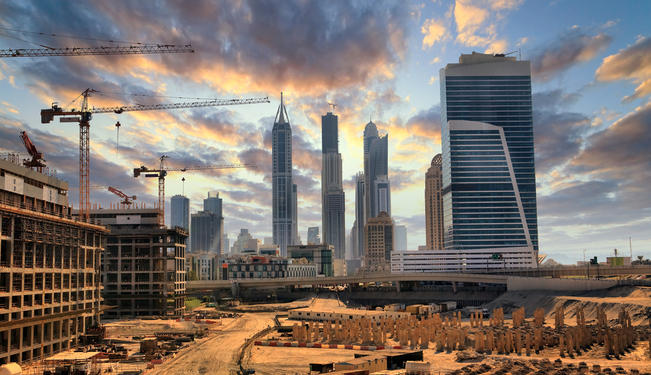In the Middle East, political regimes and economic performance are intertwined par excellence.
Background
The Middle East and North Africa (MENA) provides a highly diverse picture of economic structures and characteristics. Its far from uniform regional economic structure can be traced back to before the establishment of the nation-state in the region.
The MENA region has witnessed major economic transformations since the 19th century. While colonial regimes unarguably incorporated many countries in the region to the world capitalist system, whether it was through direct or indirect mandates, they also established a de facto dependence relationship between Arab colonies and their European patrons through inequitable terms of trade. Further, the colonial ties did not allow much margin for economic innovation and diversification, as the majority of Arab economies remained dependent on low-value exports and low-income generating agrarian activities.
The post-independence era witnessed the adoption of the Import Substitution Industrialization strategy (ISI). The adopted ISI model entailed protecting the domestic market from external competition through tariffs and barriers and diverting natural resources, including oil, gas, and phosphates to industry.
This strategy seemed to be highly productive in the 1970s, particularly in oil exporting countries, and led many experts to talk about a “regional economic boom.” However, this prosperity proved to be unsustainable with the volatility of oil prices due to the two oil embargos in the 1970s and the plummeting of oil rents in 1986.
The regional economic recessions that followed each of these episodes were exacerbated by the social benefits reaped in the earlier boom period, such as increased life expectancy and fertility and decreased infant mortality.
Detaining two thirds of the world’s proved liquid oil reserves, the Middle East has heavily relied on energy exports to sustain its economic development to the detriment of other industries. The dependence on the energy industry has also allowed states to maintain tight control over national resources, which has led to the institutionalization of corruption and inequality.
Regional economic integration remains at a low level. Except for the Gulf Cooperation Council (GCC) which brought together the Oil Gulf monarchies, there is a lack of regional trading blocs as tariffs remain quite high. The lack of trade between North African countries is a case in point, as the low level of integration costs around two to three percent of GDP, according to the African Development Bank.
Why is the Economy Relevant?
Many would argue that one of the main motors of social and political unrest in the MENA region stemmed from the deteriorating economic conditions and inequality from which the young population suffered, in particular. The same factor has also been used to explain why large social mobilizations succeeded in some Arab countries and not in others.
In addition to the rentier economic models, many identify the rapid growth of an increasingly young labor force as today’s main economic challenge facing the region. With per capital income in 2000 being similar to the 1980s and 1990s, Arab countries in the Middle East are characterized by stagnating living standards and high population growth.
The three most populous countries in the MENA region, for instance, have a very high percentage of young people with Egypt’s, Algeria’s, and Morocco’s populations standing at median ages of 20, 20 and 21 respectively. Based on demographic growth expectations, commentators have argued the region as a whole will witness a continuing increase in young labor force of around 3 percent for the next decades. The Arab League, based on the Arab Monetary Fund report, expects unemployment to increase from 15 million to 50 million people over the same period.
Further, as many analysts have pointed out, the poor economic performance in the region makes the Middle East and North Africa a fertile ground for religious extremism and the development of terrorist networks. That is one of the key factors which discourages both domestic and foreign investments and increases capital flight due to the increasing risk premium.
Hence, the Middle East and North Africa is a region where political regimes and economic performance are intertwined par excellence. Indeed, the soaring lack of political dynamism, particularly in a context of social change, fuels popular discontent and raises the level of political uncertainty. The increased possibility of turmoil and regime change are clear impediments to investment and economic growth.
Image: Copyright © Shutterstock. All Rights Reserved
For more than 10 years, Fair Observer has been free, fair and independent. No billionaire owns us, no advertisers control us. We are a reader-supported nonprofit. Unlike many other publications, we keep our content free for readers regardless of where they live or whether they can afford to pay. We have no paywalls and no ads.
In the post-truth era of fake news, echo chambers and filter bubbles, we publish a plurality of perspectives from around the world. Anyone can publish with us, but everyone goes through a rigorous editorial process. So, you get fact-checked, well-reasoned content instead of noise.
We publish 2,500+ voices from 90+ countries. We also conduct education and training programs on subjects ranging from digital media and journalism to writing and critical thinking. This doesn’t come cheap. Servers, editors, trainers and web developers cost money.
Please consider supporting us on a regular basis as a recurring donor or a sustaining member.
Support Fair Observer
We rely on your support for our independence, diversity and quality.
Will you support FO’s journalism?
We rely on your support for our independence, diversity and quality.





